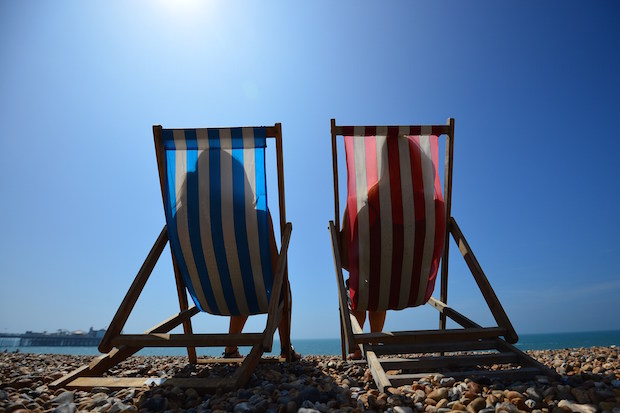The UK’s most expensive seaside town is Sandbanks in Dorset, with the average house price there nearly £665,000. Salcombe in Devon, where the average home is worth £539,950, came second. Unsurprisingly, eight of the top 10 most expensive seaside towns were in south-west England.
The least expensive was Scotland’s Port Bannatyne on the Isle of Bute, where the average house price is £77,132. Meanwhile, North Berwick has become Scotland’s most expensive seaside town, according to a Bank of Scotland report, which says the average house price there is £327,124. Tax troubles When will the stories of taxman incompetence end? Tens of millions of pounds in VAT and corporation tax due to the Government since February has not been paid as HMRC changed its bank details without telling businesses. Large tax payments from a number of businesses have bounced and remain uncollected, The Daily Telegraph has discovered, leaving firms with late payment penalty notices and in the dark over how to pay. In February HMRC changed its bank account details for firms which pay tax using IBAN, a method mainly used by overseas businesses but also by some domestic companies. Buy-to-let cheer The rapid pace of growth in buy-to-let investments has been illustrated by new figures showing the number of landlords rising by 7 per cent in 2013-14 to reach 1.75 million. Figures from estate agent ludlowthompson based on data from HM Revenue & Customs showed 1.75 million people declared income from property during the year, up from 1.63 million in 2012-13, as they chased returns on their cash that outstripped other investments. Landlords banked a combined £14.2 billion in net income from their rental properties during the year, up from £13.1 billion the year before. BrexitLeading figures in the campaign for Britain to leave the European Union say they want to be able to scrap VAT on fuel to help the poorest households. Tories Michael Gove and Boris Johnson and Labour’s Gisela Stuart wrote in The Sun that the tax on energy bills cannot be scrapped because of EU rules.
Chancellor George Osborne said this was ‘fantasy land’ economics. Remain campaigners accused Vote Leave of promising a ‘make-believe land of milk and honey’ if the UK left the EU. In other EU referendum news, Britain Stronger in Europe has said that more than a million small businesses rely on exports to the European Union. On BBC Breakfast, Conservative MP Anna Soubry, explained that while small business may not export directly to the EU, they trade with firms that do.“What the figure of 1.2 million absolutely makes clear is that a lot of the smaller and medium-sized businesses rely on exports because they’re part of…the supply chain. So they can be supplying very important components, parts for example into cars, or into the Airbus project.”
Students
Most graduates entering the job market this year will feel they have been given a ‘rough deal’, a recruitment boss has warned. Students graduating this year face ‘one of the toughest job markets in recent times’, with fewer vacancies and falling pay rates, according to jobs website Adzuna. Its monthly report said there was an 8 per cent fall in graduate jobs in April compared with the same month a year ago, down to 12,850.






Comments